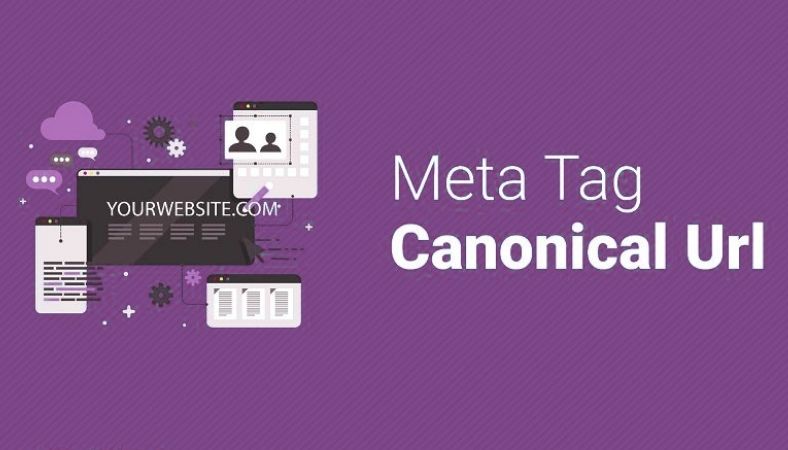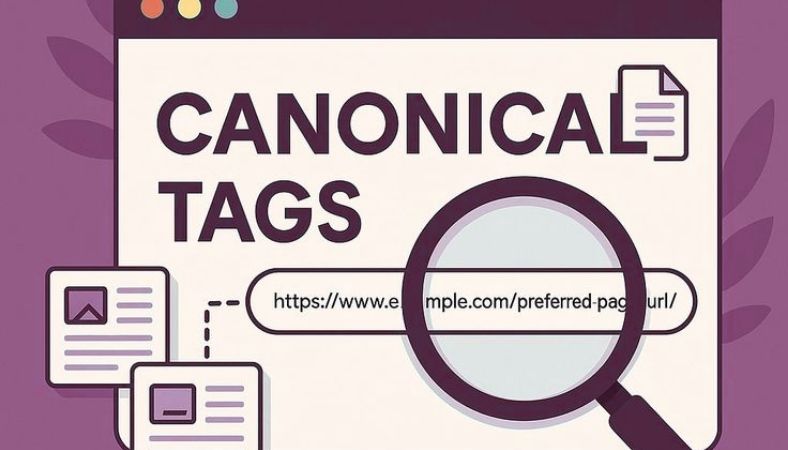Article Summary
Canonical tags SEO are an essential element of SEO to help websites avoid duplicate content problems. They aid users in locating the most suitable version of a page when multiple pages share the same content. This article explains the reasoning behind canonical tags as well as their significance in SEO and how they are essential to the ranking of search engines.
If you are aware of their importance Webmasters as well as content producers can improve rankings on search engines for their websites, and avoid penalties. This guide will explain the correct way to use canonical tags properly and avoid the most common mistakes, as well in strategies to improve the effectiveness of SEO. In addition frequently asked questions offer additional details on how to apply Canonical tag in a manner that’s efficient. HTTPS affects SEO rankings and the technical aspects as well as the benefits to user experience.
What Are Canonical tags SEO?
within the SEO field Canonical tags are typically ignored but they are essential to guarantee the accessibility and security of your site. The canonical tag is a small bit of code that allows search engines in determining the version of a page is considered as”the “main” or “preferred” version. This is essential when the same or similar information is displayed on different pages on an.
For example If there are two websites with similar content the search engine may be confused. They may find the content to be duplicate and penalize you for search engine optimization. When you employ a canonical label, you inform Google the version of your website will rank.
We’ll take a look at the significance of Canonical tags, and the things they accomplish and what advantages they provide for SEO.

Why Are Canonical Tags Important for SEO?
Avoiding Duplicate Content Penalties
Content that is duplicate could be displayed on web pages naturally due to a variety of reasons, which include different printing options, different versions of products and session IDs. If search engines find the same content on multiple websites, they may not be aware of which version it ought be able to position. With canonical tags, you’re in a position to direct visitors to the original source of content to ensure your pages don’t get affected.
Consolidating Link Equity
In the event that a variety of pages with identical contents are referred to as the same The number of hyperlinks (or “link juice”) is distributed among the pages. This could decrease confidence in your content, and may influence your rankings. Canonical tags can help you consolidate the link equity of one page, which will increase the SEO of your site.
Improving Crawl Efficiency
Search engines’ crawlers only have an incredibly limited amount of time to search your website. If they discover a large amount of similar pages, they could eat up the budget allocated to searching. By using canonical tags, crawlers can be guided by you on which pages they should concentrate on, and improve the effectiveness of your website’s web crawling.
How Do Canonical Tags Work?
Canonical tags refer to HTML-based elements placed into the area of your website. It’s like this:
HTML
This tag directs users to the page that is identified through the HREF attribute to be an "canonical" version of the page. When search engines look at your website, they'll click on this link and then rank your web pages based on the most popular address.Canonical Tag Placement
It’s recommended to have the tag canonical should be put on every page with similar and identical content. The ideal is to have this tag be displayed upon:
Pages of items with variants (e.g. colors sizes, colors or colors)
The content that is paginated (e.g. articles which are distributed across many pages)
URLs that have the tracking parameter
Web Content can be republished and syndicated across several web sites.
This is crucial to make sure the official tag indicates the version that is preferred by the site, thus insuring that the SEO signal is combined.
Best Practices for Using Canonical Tags
To maximize the use of this label’s canonical status, we’ve compiled these instructions:
Use the full URL: Always use the complete URL within the canonical tag. This ensures that search engines know what version of a page is the one they prefer. For example, use https://www.example.com/page instead of just /page.
Consistent use across pages: Make sure that each page with similar content has the appropriate Canonical Tag. Consistency in use is vital to assist search engines recognize the pages that are relevant.
Canonical tags: are used for paginating if your content is spread over multiple webpages (e.g. blog posts as well as lists of items) Use Canonical tags on all pages. Canonical tags on every page, with the exception of the last page that links on the primary page. This allows search engines see the whole contents as one.
Use Canonicals that self-referential: If your page doesn’t have duplicate content, make certain to include self-referencing Canonical tags into your website content. This informs Google that it is the site they’d prefer to see as well as helps avoid any future problems should your website’s content could be duplicated.
The Most Common Mistakes You Must Avoid Canonical Tags
While canonical tags could be extremely efficient, there are a few frequent mistakes that webmasters should be aware of
Utilizing incorrect URLs Make sure that your canonical links to point to the correct version. One mistake frequently made is to create URLs which make use of an HTTP address, instead of HTTPS or failing to include the www version or the http://www version, or the non http://www. internet version. A consistent design across your website is essential.
Don’t make use of canonical tags to distinguish the reason behind separating duplicate data. In the event that content is duplicated, failure to include Canonical tags could cause confusion for search engines. Make sure they are used when content is discovered on many URLs.
Setting canonical tags on Pages that aren’t currently connected to broken or inaccessible URLs in the Canonical Tag is a serious mistake. This can result in search engines being unable to display the correct pages in their search results, leading to the loss of the traffic.
without regard to desktop and mobile versions. Desktop Versions distinct desktop and mobile versions of your site be sure that the canonical tag you use is the correct version that is suitable for both versions. The incorrect use of the canonical tag could cause problems for the search engine, which can negative impact ranking of your website in search results.
How to Implement Canonical Tags in WordPress?
If you’re running WordPress using canonical tags, the process for applying them is quite simple. There are a variety of SEO plugins such as Yoast SEO and Rank Math create canonical tags automatically for you. If, however, you prefer to manually add them, you can add the following code into the header.php file on your site’s header.php file:
PHPThe code generates an automatic canonical tag for every page, based upon your URL. Make sure you’re looking for duplicate content and then include canonical tags to your manual as needed.
The Impact of Canonical Tags on SEO Rankings
Canonical tags are crucial to the ranking of SEO on your website. They assist search engines to determine which is the most authoritative and relevant version of your site’s content. When used correctly they can help you to stay clear of penalties and increase accessibility to your website. Although the advantages of being ranked specifically on the canonical tag is the subject in debate, their indirect impact by enhancing the quality of content consolidation and enhanced crawling efficiency has been proven.
Conclusion
In simple terms Canonical tags play a important role in SEO to avoid duplicate content as well as consolidating links ‘ equity to the best variant of the site. When you utilize canonical tags, you guarantee that your site will be easily crawled by search engines and appropriately displayed on search result pages. The most efficient ways to utilize canonical tags is to use complete URLs for your website and ensuring consistency and avoiding common mistakes can assist you in optimizing your website’s performance to improve its visibility website and boost its rank in results of searches.
If you are conscious of the significance of Canonical SEO tags, you’ll be able to be sure to avoid the common errors that are made and be sure that the content on your website remains optimized and free from duplicate content problems.
Frequently Asked Questions (FAQs)
What is a Canonical Tag used to improve SEO?
A Canonical tag is an HTML element that is used to display the most popular version of a website in the case of duplicate pages or similar pages on your site.
What is Canonical Tags? Why is it important for SEO?
Canonical tags help avoid the penalties of duplicate content by consolidating the equity of links on a specific webpage which increases the effectiveness of crawling, while also avoiding SEO issues caused by duplicate content.
How do I include canonical tags on your website?
can include canonical codes by adding them into the appropriate section in your HTML. You can also edit your HTML using an SEO section, and an SEO-related plugin, such as Yoast SEO and Rank Math, which auto-generate tags for you automatically.
Do I use canonical tag for each page?
Yes, it is recommended that you use the canonical tag on each page that has similar or identical content in order to let the search engines understand which has the highest importance to index.
How can I fix my web page contains multiple pages?
Implement canonical tags that direct engines to the primary page, improving the quality of your website and to ensure that duplicate content is not penalized.
Can Canonical tags impact my ranking?
While the direct impact on rankings isn’t clear, Canonical tags aid in consolidating content as well as efficient crawling, which helps the SEO ranking.

